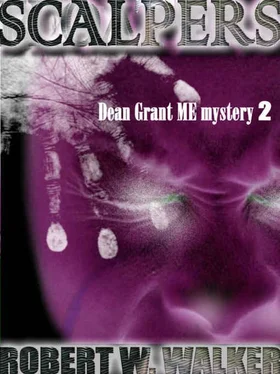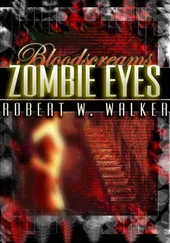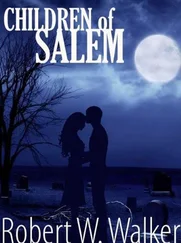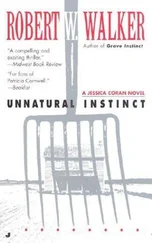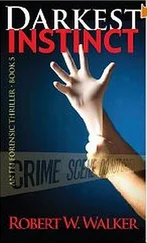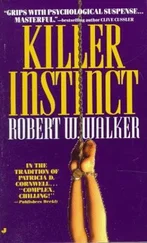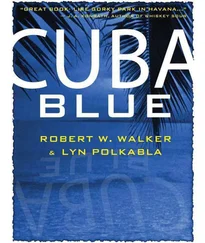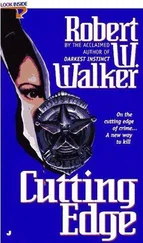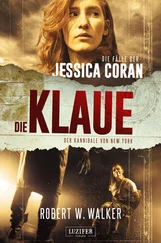"You better tell your men to shoot at anything that moves out there, Captain,” said Sid. “This guy will look like a wild boar out here, he's that hairy and little."
"I'll pass that along."
Sid's warning went down the line. The two cops were sent back in a team for the dogs. It would be well into daylight the next time they saw Hamel's little brother.
Aching from his wounds, the one in his arm in particular, Dean found he could not recall a time in his life when the morning's first light had ever meant so much. The dogs and additional men had arrived, and finding the scent of the killer from some discarded clothing in his hovel, the search was resumed. The man most knowledgeable about the dogs was given the go-ahead to let them loose, come what may, after Dean and Sid together had recalled the events of the night, explaining how they had cornered the last member of the so-called Scalping Crew.
"It's a certainty that this little man has lived off the land before,” finished Dean, recalling the years he'd lived alone at that Montana homestead while his brother was placed in county home. Sid reminded Dean that the dwarf also had had to fend for himself the entire time his brother was in Vietnam.
"So,” continued Dean, “this killer could live out there in your swampland for any number of years, unless he's rooted out now."
"Nothin’ could survive out there,” said one man.
"Not for long,” agreed a second officer.
"Dogs'll get ‘em,” said the dog man.
Dean realized they didn't truly understand what they were dealing with. Finding this pervert in the dense marsh of Wekiva had led them to the banks of the Wekiva River, along which some homes stood, the property of people who were carrying on a running battle with Orange County to remain in the preserve. Dean knew that every man, woman, and child in the preserve was now in danger, and that it had been a good move to send deputies to every house to issue warnings. But this weakened the number in the central posse, and it also divided them into dangerously small satellite groups. Everyone present had seen what the dwarf had done to Mark Williams and Joe Staubb.
For over an hour now the dogs had been running far and wide, baying, going in a southeasterly direction and then cutting back northerly, coming closer to the camp again, as if confused and circling—or had the dwarf circled back? This was the running argument among the men as the sound of the dogs increased, nearing, closer still.
"Just like a ‘coon hunt,” said the dog man, grinning wide, a two-day-old growth of hair on his face. “Don't worry, my dogs have run men before ... no problem."
"Why've they turned back?” asked Sid, his legs propped over a log, the scalded ankles causing him great pain.
The dog man spat out a wad of tobacco. “Turned their prey is my guess. Got ‘em on the run and he's so turned ‘round he don't know which way's up. If we just wait long ‘nough, your criminal's going to come runnin’ right into your arms."
"Too easy,” Dean said. “Not this weasel."
The dog man returned in a moment with word from the captain, Staubb's superior, a man named Todd Daniels. “Captain says it's time we go to meet up with the dogs. Told ‘em we should give ‘em bit more time, but he's got ants in his pants."
"Don't we all,” said Dean.
The group was some thirteen armed men now, counting Dean and Sid. The first sign of the sun filtered in through the thick brush and palmetto, scrub oak and palms. The forest was so dense here that Dean expected to see monkeys in the palm trees, but all he saw were curious squirrels and a flaming-red cardinal. Somewhere at the other end of the human chain they formed, Dean heard somebody shout a warning about a cottonmouth. No shots were fired and the line moved onward, forming a wide net, toward the sound of the dogs, which were now closing in.
Sid had not exaggerated the wilderness aspect of the tropical flatlands. Grass was up to Dean's armpits wherever there was a break in the trees. No rocks, no stones, no bumps in the land here, only miles of exotic vegetation, some plants Dean had never known existed, strange and beehive-like in their crusty coverings, plants that did battle with a sun that by 10 a.m. set the place aflame. The entire effect was that of a foreign and wild place.
"Damn sure wish I was back at the lab,” complained Sid, sweat glistening from every pore.
"Damn sure I wish I was back in Chicago."
Sid managed a half-smile. “You've proven to be a good friend, my friend.” Sid's last word ended in a groan.
"Leg hurt?"
"Both legs hurt like hell ... real bad,” he admitted.
Dean had looked at the scald marks and one of the officers who'd come on had thought to bring a first-aid kit. The burns were wrapped now, but the pain and the throbbing, if anything like Dean's arm, must be difficult to put pressure on.
"Why not hold up here, Sid, until we can come back for you?” Dean suggested when they came to a clearing with a little shade.
"Not on your life, Dean ... been nearly killed twice by that ... that thing. I'll be damned if I'll risk it a third time."
"But if—"
"No, no!” he was adamant and, Dean realized, scared. “Keep moving."
"Downriver!” shouted the captain, taking a cue from the dogs’ baying and the dog man, who suddenly bolted and raced in that direction, shouting, “I think they done got him, boys!"
He fell.
He got up.
He ran.
It had been an endless repetition all night long.
Fall, get up, run.
Sometimes he'd lie there long enough to try to think, but they gave him no time.
The dog sounds frightened him. He imagined the dogs tearing him to pieces. He sensed this was going to be his end, and neither Ian nor the dark powers would stop it. Ian was gone ... they were gone. Now it was Van, alone again, facing certain death—or capture. Neither ending particularly appealed to him.
Death meant the end of all the many years of hard work to get as far as he and Ian had come. Death by gnarling, angry dogs meant destruction of all that he had toiled for, an end to the satanic power growing within him. For his failure, too, the death would be not only a painful one, but made everlasting and endless by the very powers he had served so long, the dark ones who'd nurtured him in his infancy and childhood.
He remembered the black woman well.
He even remembered the black man who, from time to time, came in the company of the black woman.
Then they stopped coming. All he ever saw afterward was the dish, like a dog plate shoved onto the top stair of the basement. But he never forgot the dark ones who'd come and nurtured him, kept him alive during those crucial early years.
He would fight back as he'd always fought back. He wouldn't just lie here and wait for the dogs to pounce upon him and rip him limb from limb. He must think like Ian, develop a workable plan.
He snatched off his oxblood-colored vest and attached it to a limb. Taking a piece of brush, he dusted his trail as he backed from the vest down toward the river again, which he'd crossed once before, nearly drowning in the process. He didn't want to return to the water, but an animal fear drove him toward it.
He backed down now into the water, which enveloped his hairy form. He got deep down, feeling the muck tug at his knees, there on the bank, hiding among the reeds, waterlillies, and branches where a slender green snake slept so soundlessly on a limb he at first believed it part of the branch.
He knew he, too, must become part of the land, to disappear before the eye of any unsuspecting person or animal that happened by. In the water he had a chance. It would erase his scent. It would erase him.
Then he heard the voices of men on the other side of the river, heard them noisily sloshing through the shallows. He darted into a small alcove covered thick with algae, the surface a green mush he parted as he went.
Читать дальше
